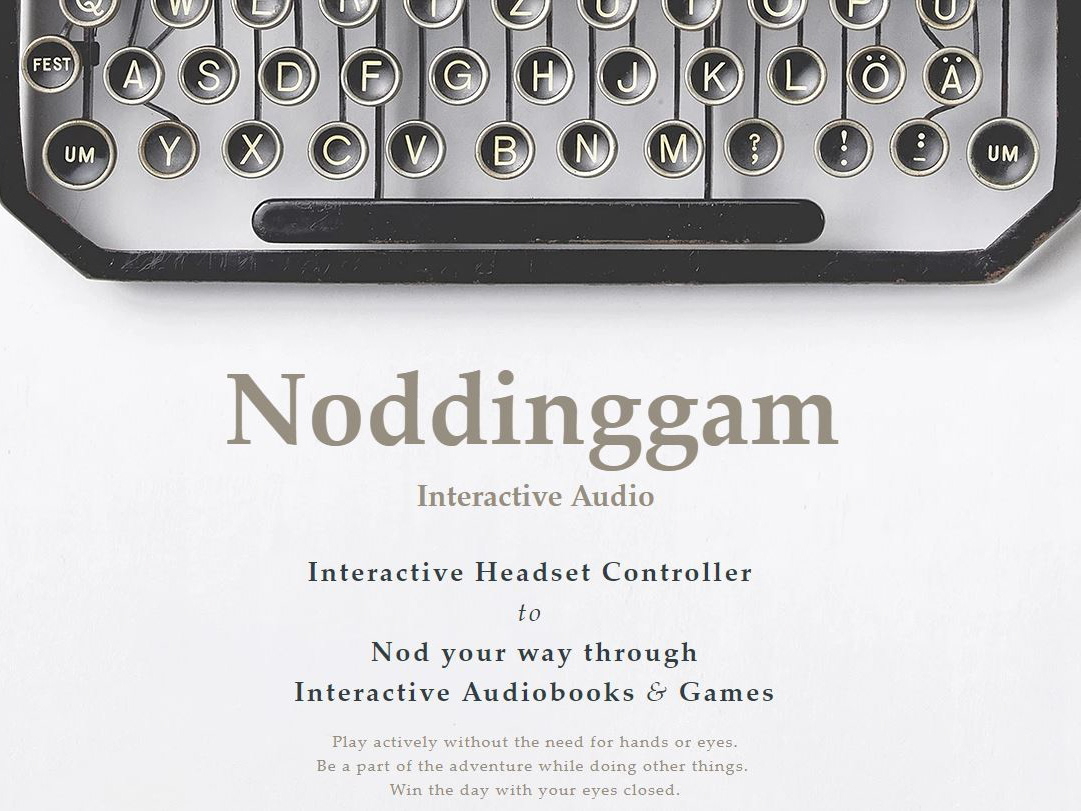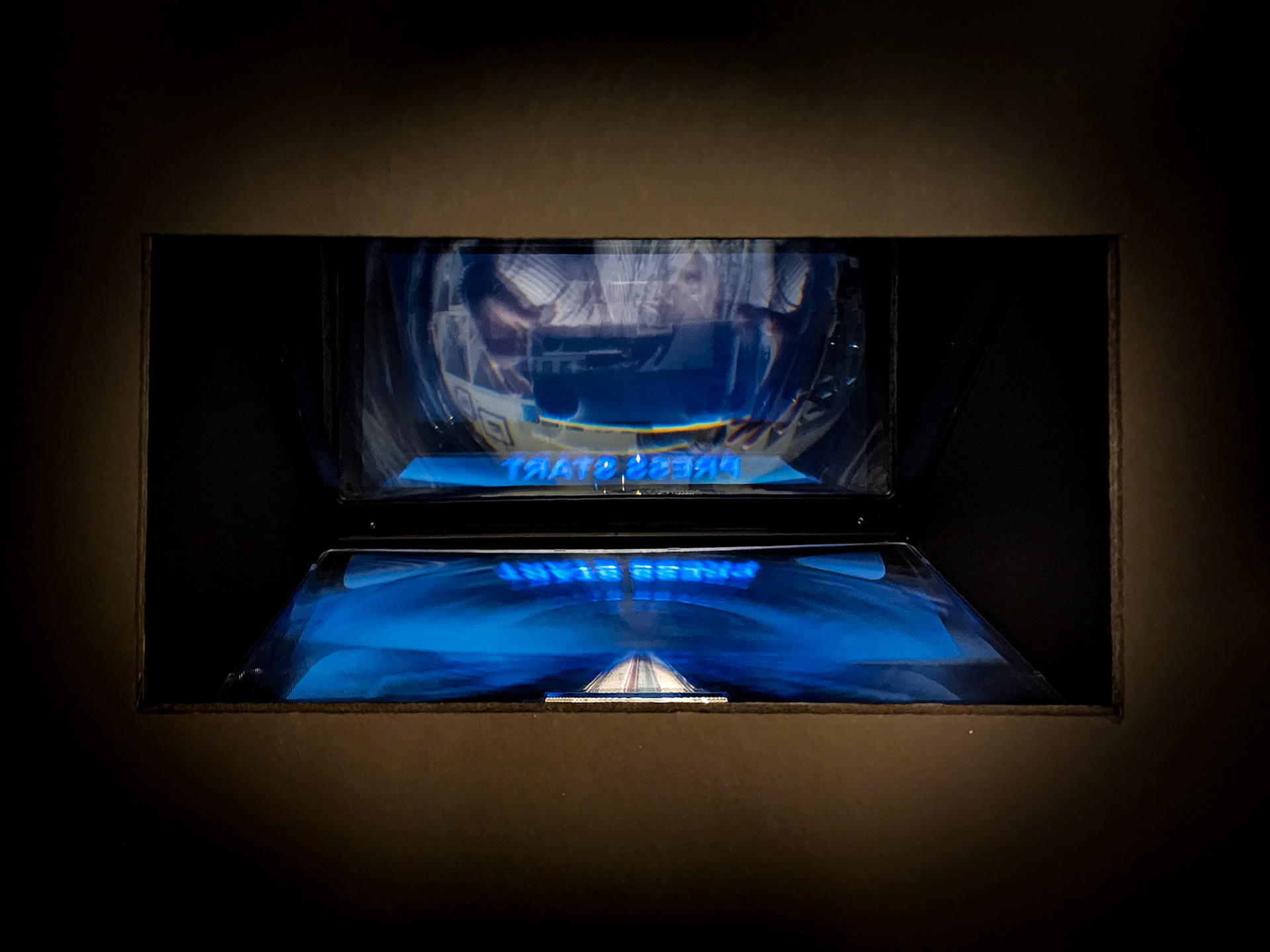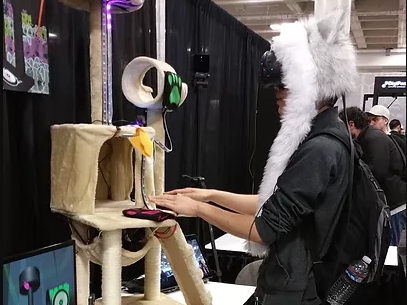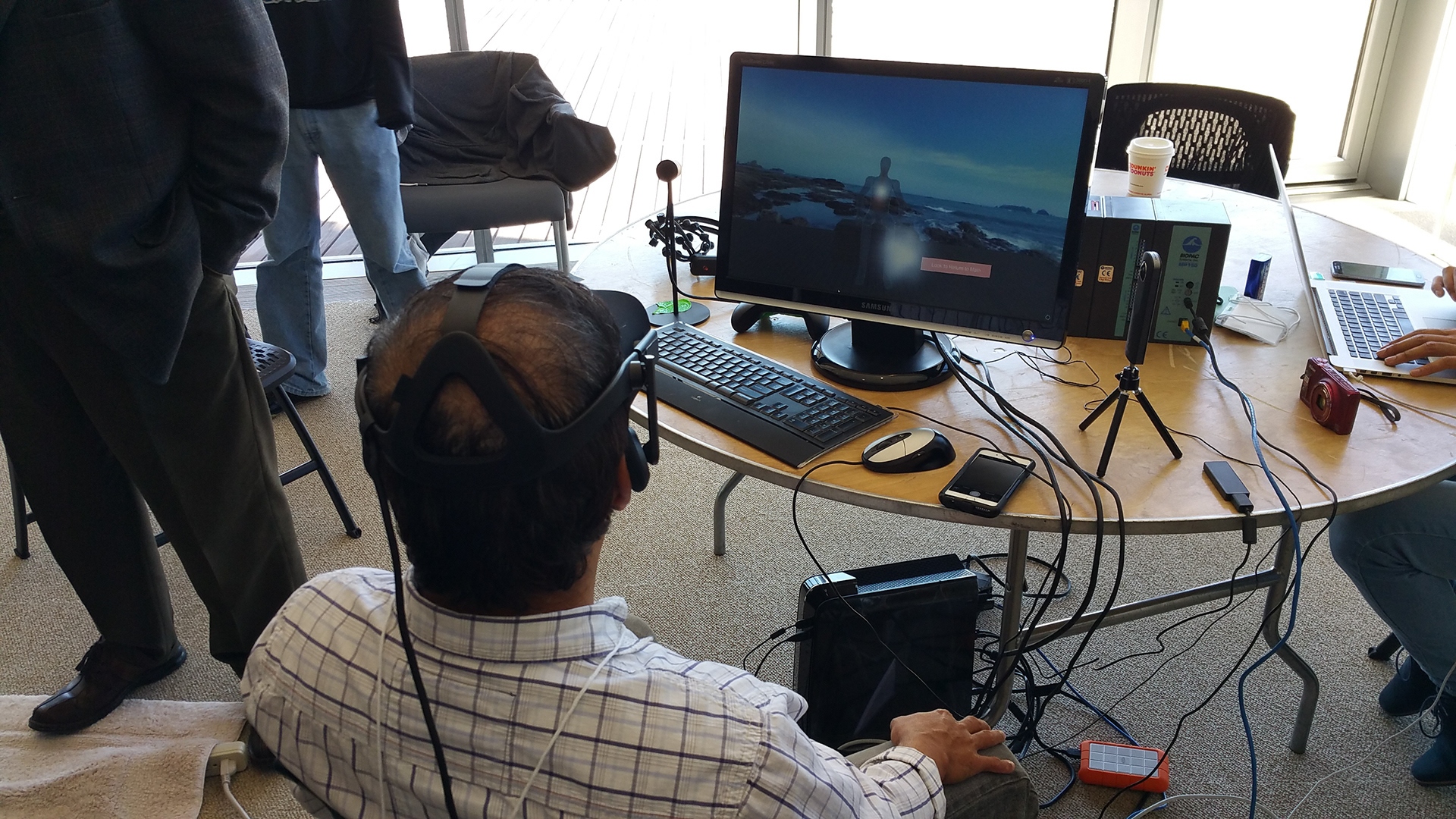
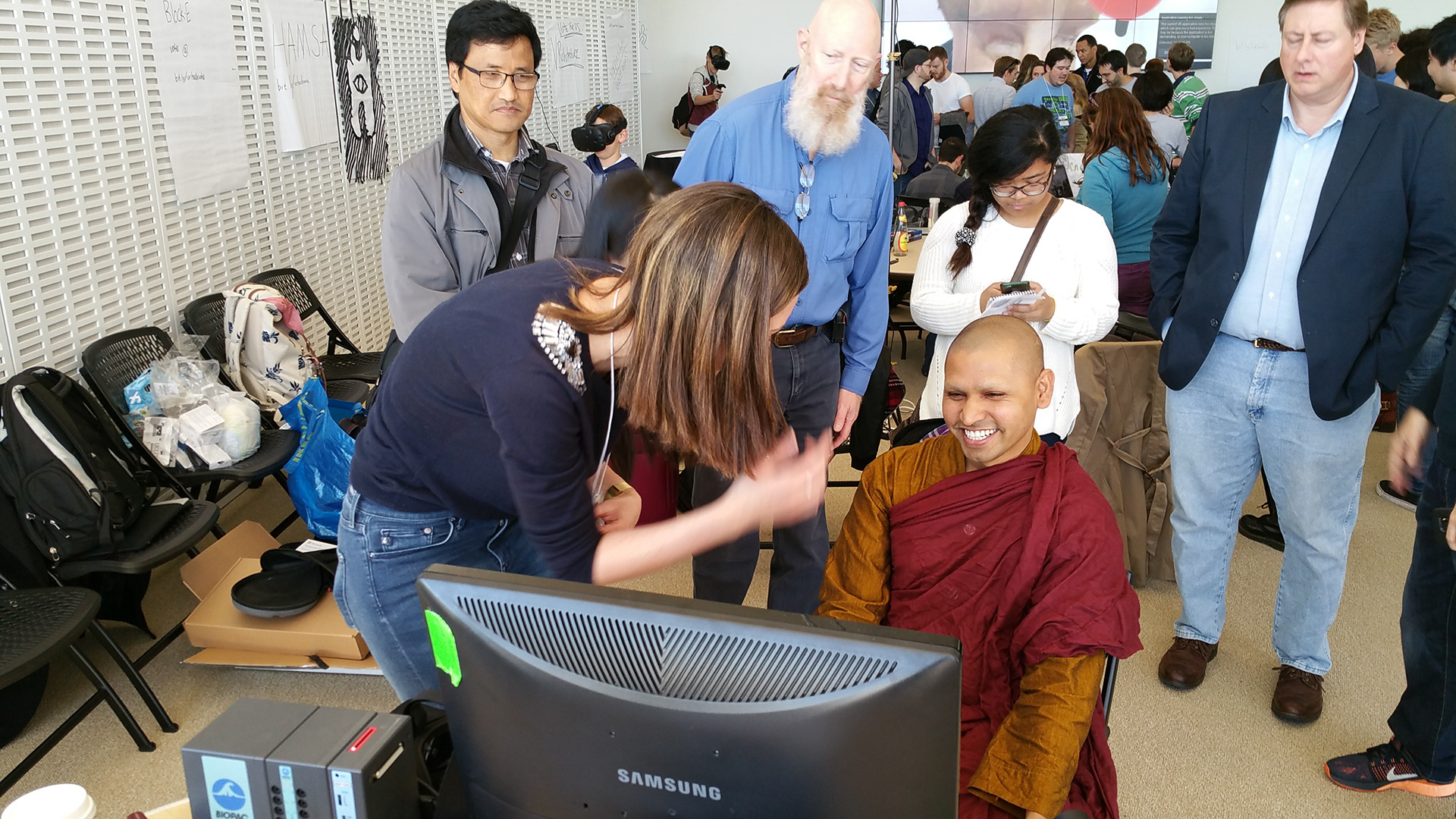
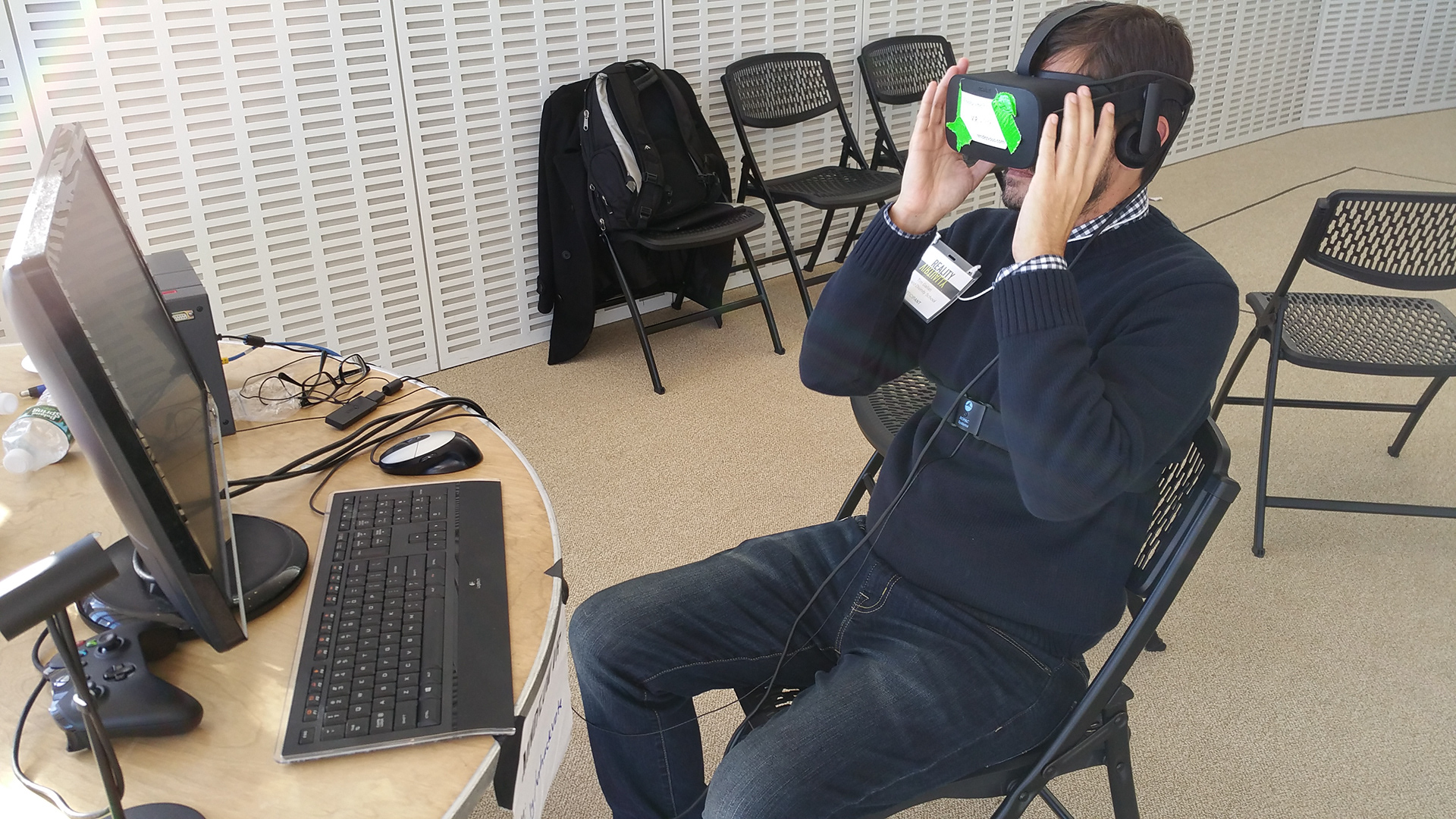
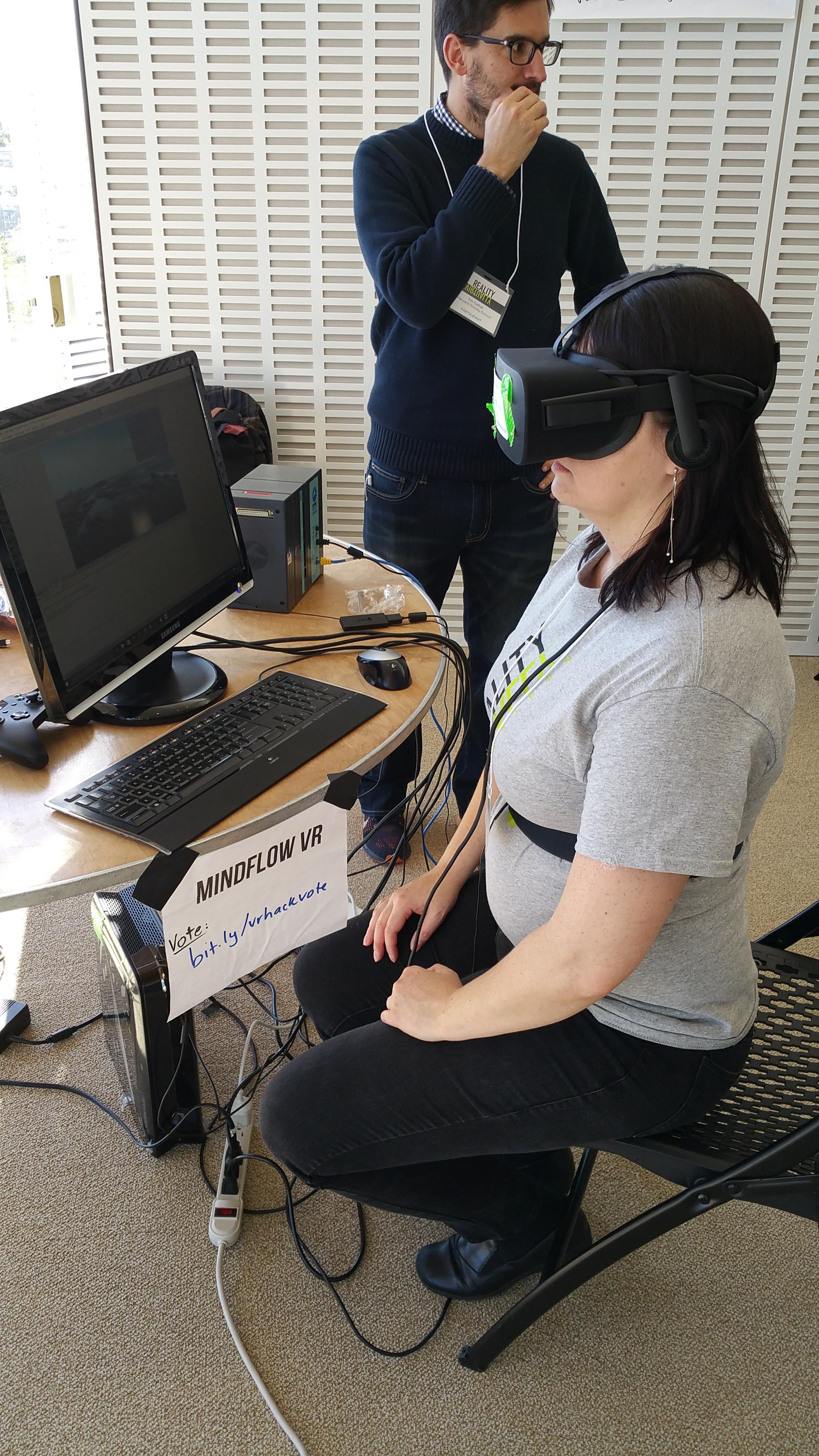
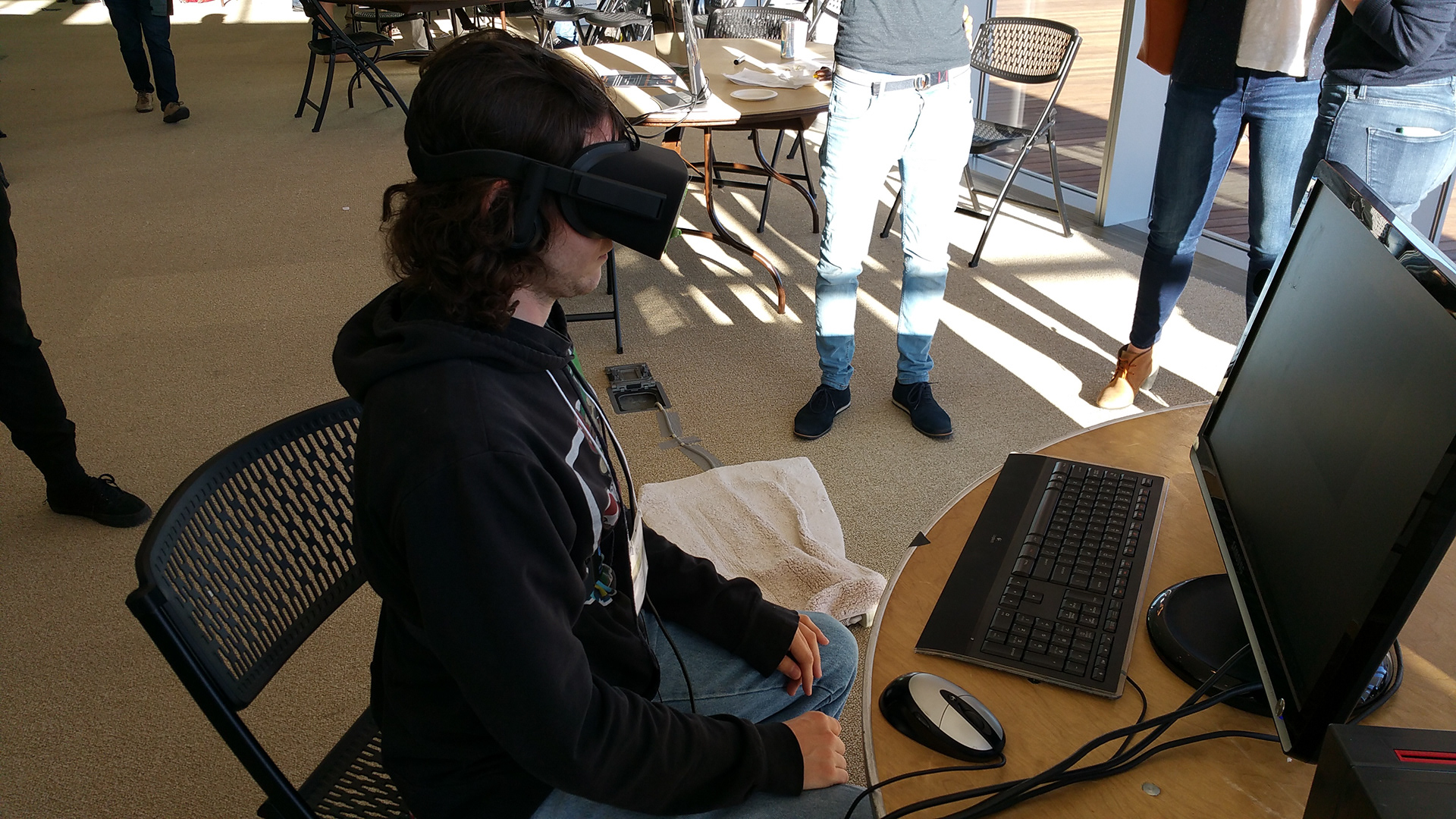
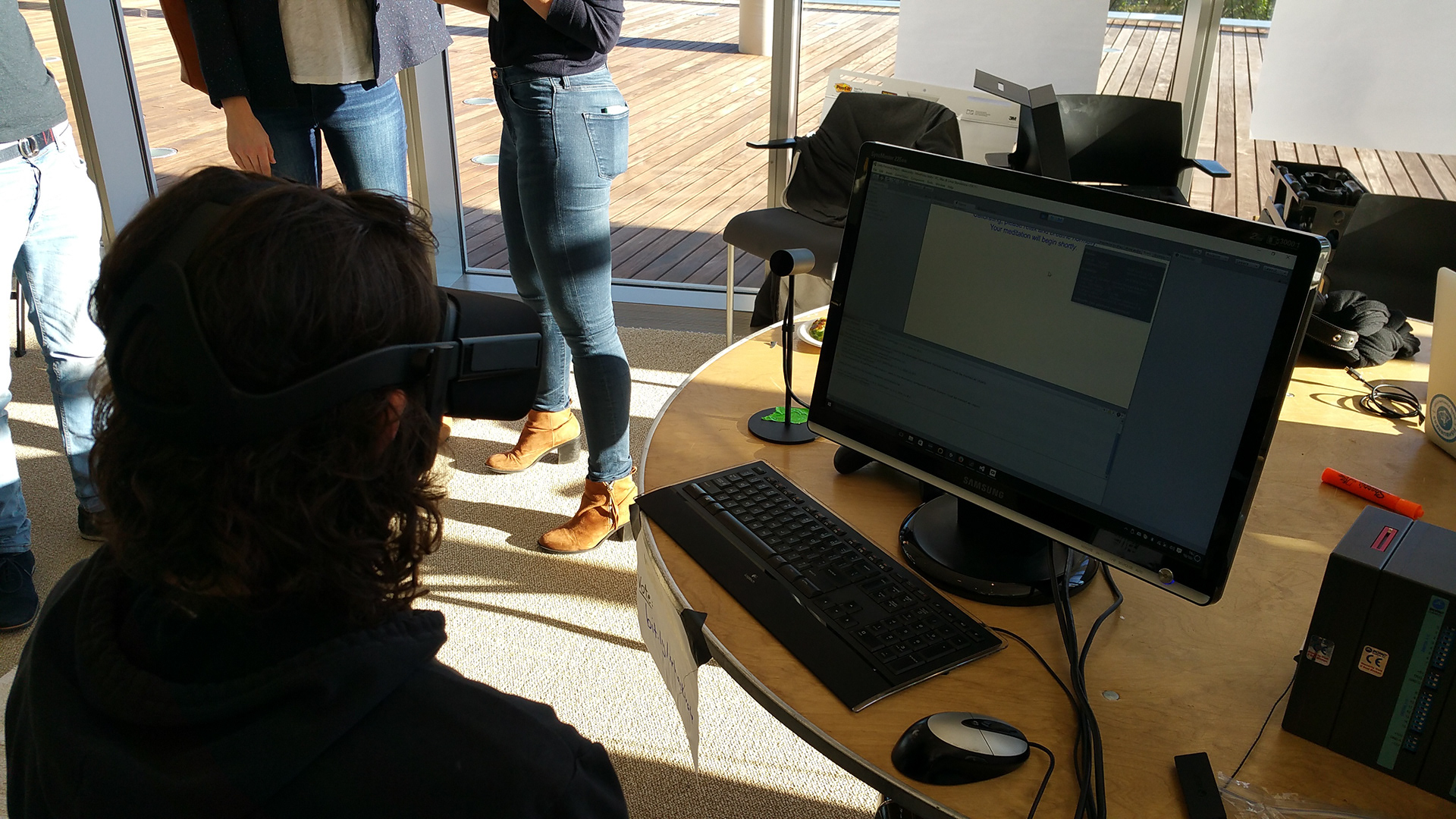
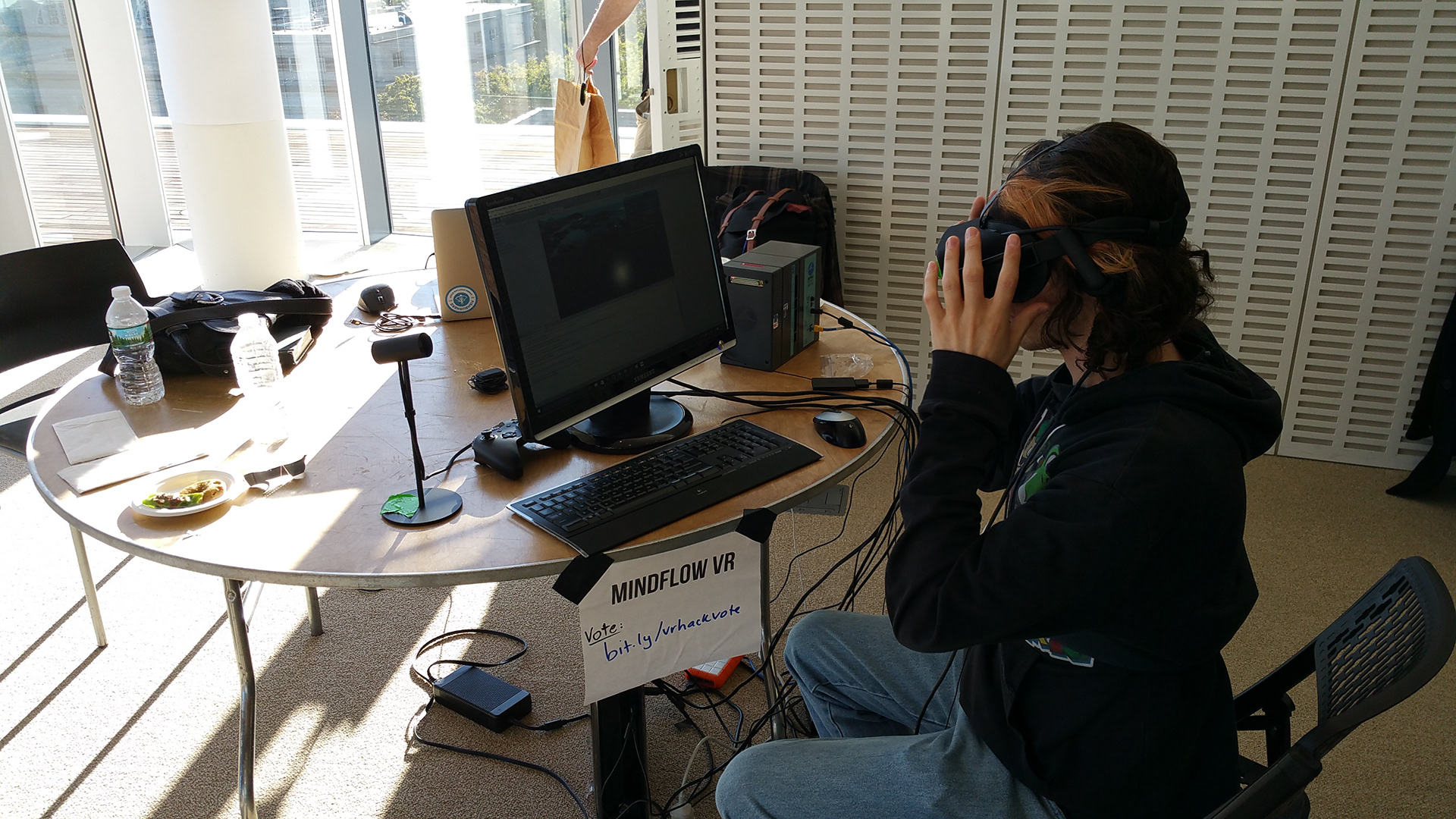
The Reality Virtually Hackathon at MIT was in it's first year, and I was proud to be accepted as one of 337 participants. Having been a big fan of Media Lab for a while, and being so involved with the budding VR technology, I was extremely excited for this opportunity.
Prior to this hackathon, I had already been working on Zen Garden and the next iteration, Aetheria: Weekend Retreat. I was fascinated with using the virtual space as a way to relax and slow down. The isolated nature of the headset & headphones were fertile grounds for creating such experiences. VR and meditation were proving to be a great pairing. I met several people with like minds and we set out to create something new.
We started with equipment for reading brainwaves, but unfortunately being in a room full of stressed people on a deadline was too much for the sensitive equipment, so we opted for another sensor that read the breathing of the individual.
This equipment proved to be easy to use, and we created a relaxing environment with audio and meditative direction by a monk our lead was friends with. The interactive effect was a glowing orb that moved with your breathing. The goal was to try to match the breathing of the host in VR. The session proved so effective that one of the graduate students participating on the team continued the research for their thesis, allowing the team to help along the way.
This was just the first of multiple visits to Reality Virtually at MIT.
Here's our entry description on Devpost...
Inspiration
ZenZone Gear VR app, Spire respiratory feedback device.
What it does
Provides real-time respiratory feedback during guided meditations in a VR environment.
How we built it
We connected a BIOPAC respiratory monitor to an Oculus Rift using iMotions software and created an immersive VR environment with a soothing guided meditation.
Challenges we ran into
EEG headset hardware from iMotion did not provide fully accurate readings.
Accomplishments that we're proud of
Getting live respiratory biometric data and applying it directly into visualizations in virtual reality.
What's next for MindFlow VR
Engagement with communities in medicine and wellness research.
Built With
Here are links to the hackathon, the project, and more.
Continued research with the 2016 team, MindFlow, resulted in a publication in Applied Psychophysiology and Biofeedback (https://rdcu.be/bi6la)
